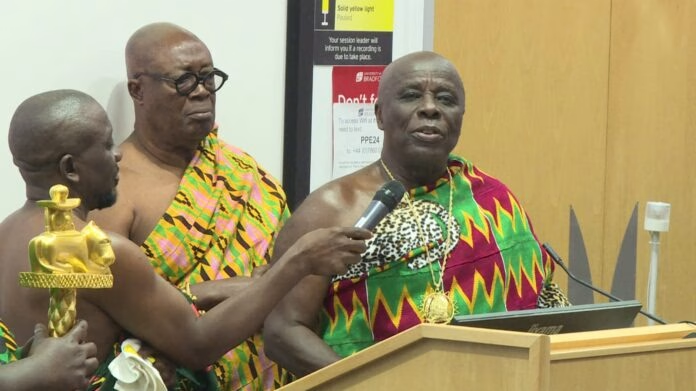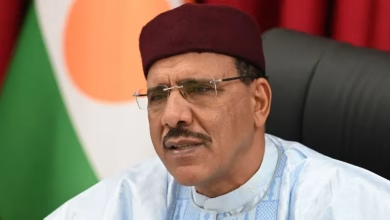Western Institutions Complicit in African Corruption – Okyenhene

- Okyenhene criticizes Western institutions for providing safe havens for corrupt African leaders
- He calls for immediate action on climate change
- Okyenhene advocates for recognizing and integrating traditional African practices
Osagyefuo Amoatia Ofori Panin, the Okyenhene, has criticized Western institutions and economies, asserting that they are not exempt from responsibility for corruption in Africa.
He highlighted that the actions and inactions of Western leaders contribute to the corruption issues on the continent.
Okyenhene pointed out that Western countries often serve as safe havens for corrupt African politicians and leaders, who use these locations to conceal and enjoy their illicitly obtained wealth. He questioned the disparity in scrutiny faced by African leaders compared to ordinary citizens.
Addressing an audience at the University of Bradford’s School of Management, Okyenhene criticized the lack of oversight on large financial deposits by African leaders in foreign banks and investments in real estate abroad.
He urged Western leaders to challenge these transactions and ensure transparency.
He emphasized the moral obligation of leaders, drawing from Biblical teachings about service and leadership, and urged African leaders to embrace service as a fundamental aspect of their roles.
Okyenhene also expressed frustration with global leadership on climate change, criticizing major nations for their insufficient efforts to address the environmental crisis.
He warned that the world is moving towards an apocalyptic scenario due to the unchecked increase in greenhouse gas emissions.
He called for a shift toward net-negative emissions and highlighted the urgent need for effective policies to address the climate emergency.
Discussing sustainable development and traditional governance, Okyenhene reflected on the traditional African values of living in harmony with nature, which predate colonialism.
He noted that indigenous knowledge and practices, often overlooked by early Europeans, offer valuable insights for managing natural resources sustainably.
Okyenhene concluded by urging global leaders to adopt a more effective approach to protect the environment and ensure a viable future for coming generations.






